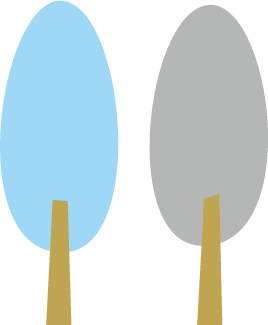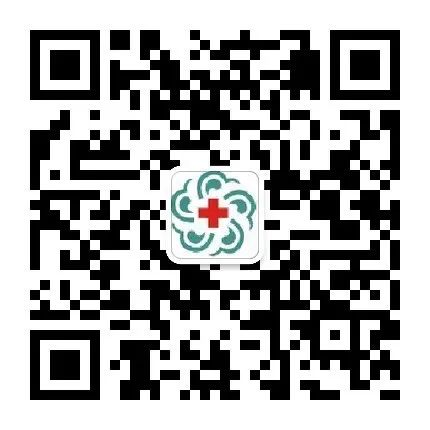Angelica Sinensis (当归)
Also known as Gan Gui, Qin Na, Xi Dang Gui, Min Dang Gui, Jin Dang Gui, Dang Gui Shen, Han Gui Wei, Dang Gui Qu, and Tu Dang Gui, it is a perennial herb that grows to a height of 0.4-1 meter. The flowering period is from June to July, and the fruiting period is from July to September.
In 1957, Angelica Sinensis was introduced from Europe to China. It is primarily produced in the southeastern part of Gansu Province, particularly in Min County, which is known for its high yield and quality. Other provinces such as Yunnan, Sichuan, Shaanxi, and Hubei also cultivate it.
The root of Angelica Sinensis is used medicinally and is one of the most commonly used Chinese herbs. It has the effects of nourishing blood, regulating menstruation, relieving pain, moistening dryness, promoting bowel movements, anti-cancer properties, anti-aging effects, and enhancing immunity.
Main Functions of Angelica Sinensis
Nourishes blood, moistens the intestines, regulates menstruation, invigorates blood circulation, counteracts uterine contractions, has anti-cancer effects, anti-aging properties, prevents and treats frostbite, and enhances immunity.
Medicinal Properties of Angelica Sinensis
Source: The root of the perennial herb Angelica Sinensis from the Apiaceae family.
Taste and Properties: Sweet, pungent, warm.
Meridians: Enters the Liver, Heart, and Spleen meridians.
Collection and Processing: Harvest in late autumn, remove the fibrous roots, allow moisture to evaporate slightly, bundle into small bunches, and dry slowly over smoke.
Preparation: Angelica Sinensis: Remove impurities, wash clean, moisten, and dry until the internal and external moisture is suitable, then slice and sun-dry.
Wine Angelica: Take slices of Angelica Sinensis, spray evenly with yellow wine, let it sit for a while, then stir-fry in a pot over low heat, and cool (for every 100 jin of Angelica, use 10 jin of yellow wine).

Main Indications: Nourishes blood; invigorates blood; regulates menstruation and relieves pain; moistens dryness and promotes bowel movements. It is primarily used for symptoms of blood deficiency; irregular menstruation; amenorrhea; dysmenorrhea; masses and lumps; metrorrhagia; abdominal pain due to deficiency and cold; atrophy; numbness of the skin; constipation; post-dysentery heaviness; carbuncles and ulcers; trauma and injuries.


The Legend of Angelica Sinensis

There are three legends regarding the naming of Angelica Sinensis. According to the “Pharmaceutical Dictionary”: “Angelica Sinensis is named because it can regulate qi and nourish blood, allowing qi and blood to return to their respective places.” Li Shizhen in the “Compendium of Materia Medica” states: “In ancient times, when a man married, he needed to continue the lineage; Angelica Sinensis is a woman’s essential medicine for regulating blood, implying a longing for the return of a husband, hence the name Angelica Sinensis.” This aligns with the Tang poem “Huma is easy to plant but no one plants it, it is the time to return yet not return.” Because Angelica Sinensis is a key herb for women’s health, it is metaphorically named for the longing for a husband’s return.
In the “Records of the Three Kingdoms”, there are two accounts related to Angelica Sinensis. The first is in the “Records of the Three Kingdoms: Wu Book: Biography of Taishi Ci”, which states that Cao Cao, upon hearing of Taishi Ci’s service to Eastern Wu and knowing his talent, wanted him to abandon Wu and return to Wei, sending him a letter with some Angelica Sinensis inside. The second account is in the “Records of the Three Kingdoms: Shu Book: Biography of Jiang Wei”, which mentions that in the sixth year of Jianxing, Ma Zun, the governor of Tianshui County in Wei, was unfriendly to Jiang Wei, suspecting him of having ulterior motives. Jiang Wei resolutely defected to Zhuge Liang. The strategists of Wei, knowing Jiang Wei was a rare talent, tried various means to persuade him to “return”. They knew Jiang Wei was a filial son, so they brought his mother to Luoyang, coercing her to write a letter to Jiang Wei, enclosing Angelica Sinensis, implying that Jiang Wei should return to Wei.
Upon receiving the letter, Jiang Wei understood its intent. However, he was clear about his public and private duties, and after much contemplation, he believed that Shu was the legitimate successor of the Han dynasty, and Zhuge Liang trusted and valued him greatly. He thought that the day he unified the Central Plains would be the day he reunited with his mother, and at that time, he could resign from office and return home to serve his elderly mother, achieving both loyalty and filial piety. Thus, he replied to his mother, enclosing some medicinal herbs to express his aspirations: “A hundred acres of good land is not as valuable as one mu (母); but having great ambitions is more important than Angelica Sinensis.” A mother knows her son best; upon receiving her son’s letter, Jiang’s mother understood and said: “My son has great ambitions, and I have no other desires.”
Later, Wei repeatedly pressured Jiang’s mother to write letters urging Jiang Wei to abandon Shu and join Wei, but Jiang’s mother refused. After Jiang Wei’s death, the people of Shu admired him greatly and built a temple for him in Jian’ge, where he had stationed his troops for many years, also known as Jiang Gong Temple, with couplets inside that read:
Majestic passes and high pavilions display heroic spirit, offering heartfelt devotion, boldly opening up;
Remaining waters and mountains under the setting sun, with humble aspirations, emptying the longing for Angelica Sinensis.

Important Notice!!!

How to Use Angelica Sinensis in Cooking

Recipe: Angelica Sinensis Blood-Nourishing Soup
Ingredients: 2 red crabs (about 750 grams), 10 grams of Angelica Sinensis, 50 grams of Astragalus (Huang Qi), 50 grams of Goji Berries (Gou Qi Zi), 50 grams of Eucommia (Du Zhong), 100 grams of black dates (Hei Zao), 250 grams of rice wine, and appropriate amount of water.
Method:
1. Clean the red crabs, remove the shells and gills, and cut into pieces for later use.
2. Place the cut red crabs in a pot, add Angelica Sinensis, Astragalus, Goji Berries, Eucommia, black dates, and an appropriate amount of water, then add rice wine. Simmer over low heat for about 1 hour. Effects: Astragalus and Angelica Sinensis nourish qi and generate blood; Eucommia nourishes the liver and kidneys, strengthens tendons and bones, and stabilizes pregnancy; Goji Berries nourish the liver and kidneys, benefit essence, and improve vision; black dates and red dates have similar components and effects, but black dates are more effective in nourishing blood. Together, they work to enhance qi and nourish blood.
Application: Suitable for symptoms of qi and blood deficiency such as shortness of breath, lack of energy, pale complexion, and fatigue.
Recipe: Free-range Chicken Soup
Ingredients: Free-range chicken, Angelica Sinensis, peanuts, red dates, black fungus, and ginger slices.
Method:
1. Cut the free-range chicken into pieces and wash with clean water for later use.
2. Boil water in a pot, add the chicken pieces to blanch and remove blood, then take them out.
3. Place the blanched chicken pieces in a pressure cooker, add water (enough to cover the chicken by about 1 cm), and add ginger slices, Angelica Sinensis, peanuts, and black fungus to stew.
4. After about 40 minutes of pressure cooking, turn off the heat, and add salt, pepper, and chicken essence to taste when serving.
Recipe: Pigeon Soup
Ingredients: One pigeon, ginger slices, green onion segments, cooking wine, red dates, a few Goji Berries, a little ginseng, Angelica Sinensis, prepared rehmannia, mulberries, poria, lotus seeds, and ganoderma.
Method:
1. Clean the pigeon, place it in boiling water, add a bit of cooking wine to remove blood, then take it out and wash clean.
2. Add ginger slices, green onion segments, Goji Berries, and red dates, and simmer on low heat for 2 hours.
3. Poke a few times with chopsticks to make it easier to cook thoroughly. It is better to cut it open beforehand rather than keeping the pigeon whole!
4. Simmer for another 20 minutes on low heat, adding Goji Berries last to preserve nutrients. Finally, add seasonings: salt and chicken essence to taste.
Angelica Sinensis Porridge:
1. Wash Angelica Sinensis and place it in a sand pot, soak in about 600 ml of warm water for 10 minutes, then decoct twice.
Angelica Sinensis Porridge
Each time boil and then simmer for 20 to 30 minutes, collecting 150 ml of liquid.
2. Soak and wash the red dates.
3. Wash the japonica rice clean.
4. Combine the japonica rice, red dates, and white sugar in a pot, add the medicinal liquid, and an appropriate amount of water to cook porridge.

Attention! Attention! Attention!
Use with caution in cases of damp obstruction and diarrhea.
[Long press the QR code to follow]


